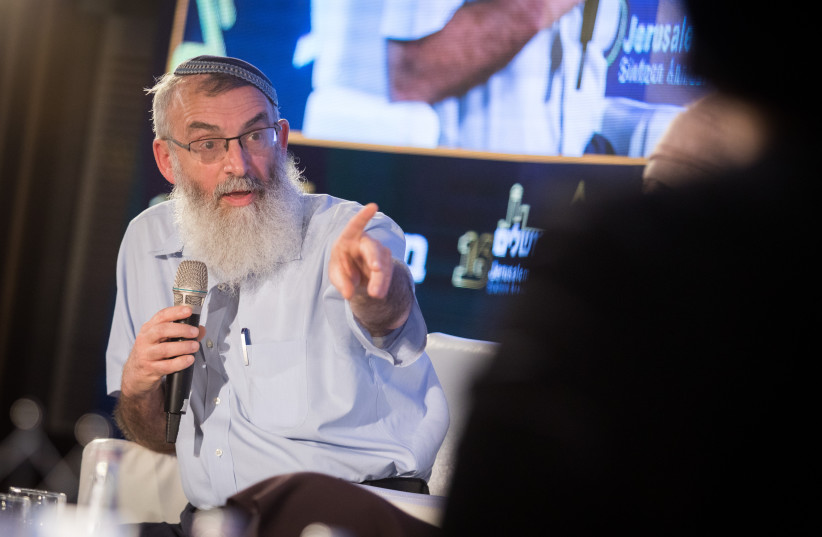Israel must “restore the faith” of Diaspora Jews in the State of Israel, and at the same time emphasize the common ground between Jews in Israel, to tackle the most critical challenges to the Jewish people in the coming year, Rabbi David Stav told The Jerusalem Post ahead of Yom Kippur.
The rabbi, who heads the Tzohar religious-Zionist rabbinical association, said that addressing these two issues were crucial to the well-being of the global Jewish people and urged all actors to aspire to these goals.
“The biggest challenge to Jewish society in Israel is to believe that the common ground that exists within the Jewish people can overcome our differences,” said Stav.
“The feeling is that in the last year or two our people has become increasingly divided through societal and political struggles which create the feeling that every group is ready to sink the collective ship just so the other group won’t be in charge.”
Stav said “this feeling of enmity and hatred” has exceeded all reasonable boundaries of late, and that public discussion and debate no longer centered around important ideological concerns but rather “personal and political struggles which threaten to destroy every good thing we have.”
Said the rabbi, “The first task in the government and the opposition is to make mighty efforts to create a unifying dialogue among the different groups of the Jewish people.”
Stav also lamented what he said was the reality in which a large part of the Jewish people do not feel at home in Israel.
“This is absolutely awful. God has 15 million Jewish children and it doesn’t matter to which denomination they belong.
“The holy mission of the State of Israel should be that every one of them feels that this is their home and that Jews, without connection to their level of religiosity, should feel that the Jewish people is their people and the state of Israel is their home.”
Asked what may have led to the situation in which many Jews, particularly in the US no longer feel a strong attachment to the Jewish state, Stav said there are causes both in Israel and in the Diaspora.
He said that too often in Israel, Diaspora Jews are insulted and disparaged, and that a different form of respectful dialogue is needed.

“We won’t agree on everything. We will argue and fight, but we will fight like brothers and family fight,” said the rabbi.
On the part of Diaspora Jews, particularly in the US, Stav said non-Orthodox denominations with universal messages that have outweighed an emphasis on Jewish peoplehood must also share responsibility for the situation.
“Movements which in the past saw their main goal as integrating into the world and into Western culture are paying a heavy price today, in that their children do not necessarily understand the importance of preserving their Jewish identity,” said the rabbi.
“Movements which understood that when seeking to fix the world there is also importance to fulfilling Jewish tradition preserve a better connection among the younger generations
“A society which doesn’t know how to give importance to why being Jewish is important, and why it is important to preserve the Jewish people, will be very challenged to deal with the question of assimilation.”